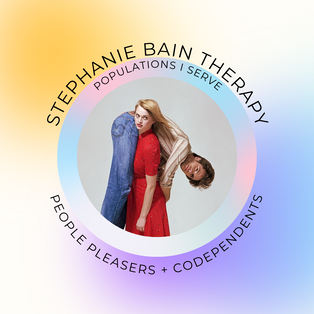|
“I used to spend so much time reacting and responding to everyone else that my life had no direction. Other people's lives, problems, and wants set the course for my life. Once I realized it was okay for me to think about and identify what I wanted, remarkable things began to take place in my life.” ― Melody Beattie, The Language of Letting Go: Daily Meditations on Codependency I'm a therapist for people pleasers in Oakland, CA! Therapy for people pleasers can help break the cycle of constantly putting others' needs first and develop healthier patterns of behavior and self-care. One of the main struggles people pleasers experience is feeling safe showing up authentically and increasing self-compassion. Therapy for people pleasers might include working on...
Trauma and People Pleasing Trauma, especially in early life, can disrupt a person's sense of safety and security. In order to cope with the traumatic experiences and mitigate the risk of further harm, individuals may develop a heightened need for external validation and a strong desire to please others as a way to seek safety, security, and maintain a sense of control. Traumatic experiences can create a deep fear of negative consequences, such as punishment, abandonment, or rejection. People who have experienced trauma may adopt people-pleasing behaviors as a means to avoid triggering these feared consequences, believing that by pleasing others, they can minimize the potential for harm. In some cases, people-pleasing behaviors may have been adaptive strategies developed during the traumatic experience itself. Individuals may have learned that complying with others' demands, avoiding conflict, or prioritizing others' needs helped them navigate or survive challenging or abusive situations. Therapy for people pleasers often include trauma processing. Looking for a therapist for people pleasers in Oakland, CA? Contact me here. Therapy for people pleasers in Oakland, CA
0 Comments
Leave a Reply. |
AuthorStephanie Bain, LMFT Archives
April 2024
Categories
All
***Resources are not a substitute for therapy and are not intended for making diagnoses or providing treatment. Not all practices and tools are suitable for every person. Please discuss exercises, practices, and tools with your individual therapist or health care provider.
|


 RSS Feed
RSS Feed